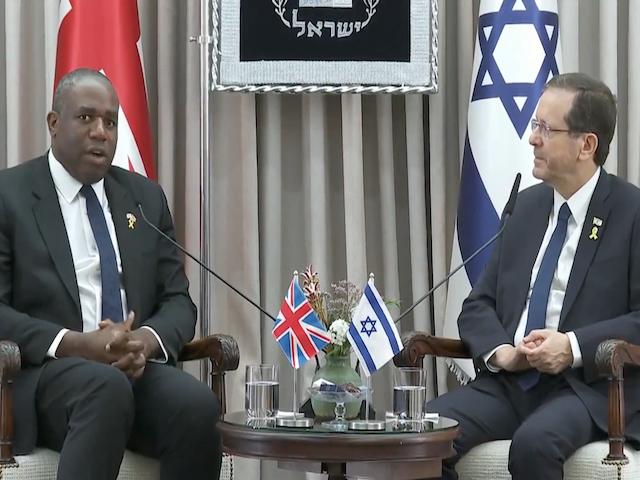The United Kingdom is on the brink of a momentous decision regarding the imposition of an arms embargo on Israel. This decision follows a comprehensive investigation into alleged war crimes committed by Israel in the Gaza Strip, as reported by The Times on Monday. The newly appointed Foreign Minister, David Lammy, is under immense pressure from Labour Party backbenchers to implement a complete ban on arms sales to Israel, with speculations that an announcement could be imminent.
A Deliberate Approach to a Contentious Decision
Despite the urgency expressed by some Labour members, the decision is expected to take more time. Government ministers are meticulously reviewing export licenses for specific weapons implicated in the alleged war crimes in Gaza. This intricate review process could extend over several weeks, underscoring the complexity and sensitivity of the issue.
Israel was expecting the UK to block some weapons exports as soon as today – but Labour have instead put off the decision, reports say ⬇️https://t.co/Xj5FhoJygn
— The National (@ScotNational) July 30, 2024
Strained UK-Israel Relations
The arms sales controversy has significantly strained UK-Israel relations, especially since the Labour government assumed power. This new stance contrasts sharply with the previous Conservative government's lenient policies and unwavering support for Israel. Critics have accused Israel of committing genocide in Gaza, further intensifying the debate.
Financial Stakes: $19.7 Million in Arms Sales
In the past year, the United Kingdom has sold $19.7 million worth of arms to Israel. Activists have highlighted the involvement of British-manufactured components in Israel's military operations, particularly the F-35 fighter jets. The UK has a vested interest in the F-35 program, contributing 15% to each aircraft, ensuring job security in its armaments industry. Halting these sales could complicate the UK's acquisition of additional F-35s and strain its relationship with the United States.
To reiterate, the UK government is considering cutting weapons supply to Israel due to Hamas terrorists being denied Red Cross visits— in the same week that they decide to give $25M to Gaza, where Hamas hides Israeli hostages in tunnels, subjecting them to rape and daily torture. pic.twitter.com/W8W2kYqjkt
— Hen Mazzig (@HenMazzig) July 30, 2024
Protests and Arrests Highlight Public Dissent
Public dissent against arms exports to Israel has been palpable. Recently, nine activists were arrested in London after blocking the entrance to the Foreign Office in protest. These demonstrators, organized by Workers for a Free Palestine, have been vocal in their demand for the UK to cease arms shipments to Israel and provide legal counsel on the matter. The Labour government has faced criticism for not enacting significant changes in UK policy towards Israel.
Government's Response and Future Actions
Downing Street has emphasized that the decision on arms sales to Israel is an "ongoing" and "complex process." Keir Starmer's spokesperson clarified that any assessments by Foreign Secretary David Lammy will be made public after receiving legal advice and completing a detailed evidence analysis. Lammy reiterated in the Commons that the government is obligated to review Israel's compliance with humanitarian law and will update the House as soon as possible.
UK is yet to condemn #Hezbollah rocket attack that killed 12 Israeli children in #MajdalShams, but instead @Keir_Starmer government is set to announce weapons embargo against Israel?
— Arsen Ostrovsky 🎗️ (@Ostrov_A) July 28, 2024
Corbyn-proud! Inexcusable. Unconscionable.
See more in article by @NatalieLisbona @MailOnline. pic.twitter.com/BfDb5pN7In
Broader Implications and Strategic Considerations
The debate extends beyond arms sales. Lammy assured MPs of his awareness of the threat posed by Hezbollah to Israel. Discussions also touched on proscribing Iran's IRGC force, with Middle East Minister Hamish Falconer affirming the UK's commitment to stand against Iranian aggression. Furthermore, Lammy highlighted the government's prioritization of securing the release of hostages held by Hamas in Gaza.
Conclusion
The UK’s impending decision on an arms embargo against Israel represents a pivotal moment in its foreign policy, reflecting broader geopolitical dynamics and humanitarian concerns. As ministers continue their deliberations, the outcome will undoubtedly have significant implications for UK-Israel relations and the region's stability.


